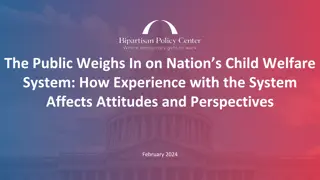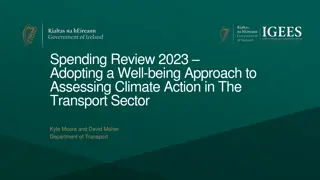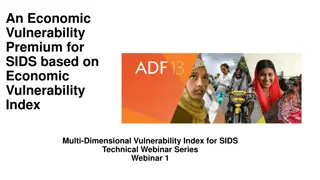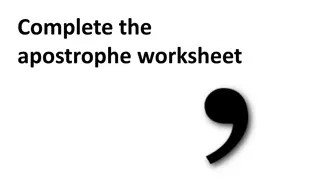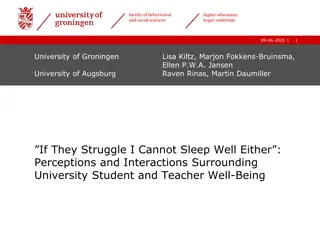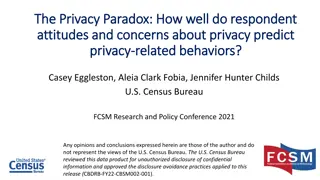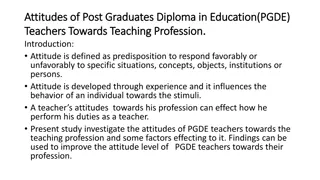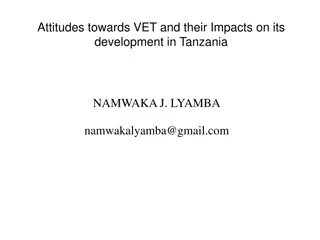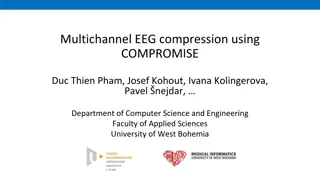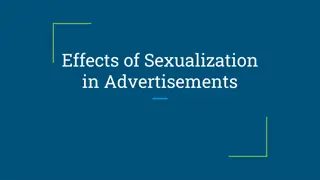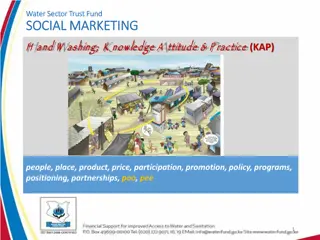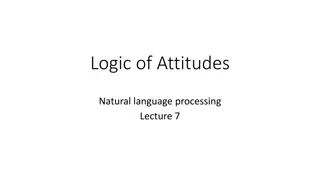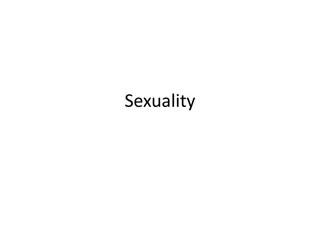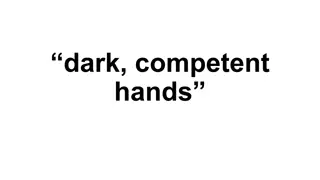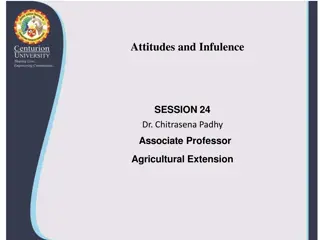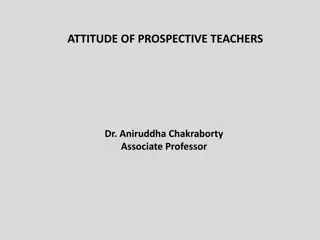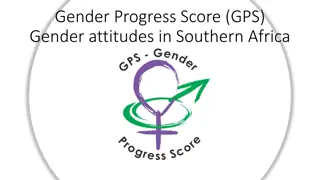The Well-being and Attitudes of Students Towards School Prof. Dr. Ivana Zečević University
This chapter explores the significance of investing in the well-being and healthy development of students studying at the Faculty of Philosophy, Psychology Study Program, at University in Banja Luka. It delves into subjective assessments of life satisfaction, experiences of negative events, and positive attitudes essential for promoting healthy development among adolescents. The PISA 2018 data on well-being provides insights into students' self-assessments, albeit subject to biases like social desirability and reference group influences. The chapter also discusses satisfaction levels and life ratings of students, comparing data from Bosnia and Herzegovina, OECD, and the EU.
Download Presentation

Please find below an Image/Link to download the presentation.
The content on the website is provided AS IS for your information and personal use only. It may not be sold, licensed, or shared on other websites without obtaining consent from the author. Download presentation by click this link. If you encounter any issues during the download, it is possible that the publisher has removed the file from their server.
E N D
Presentation Transcript
The well-being and attitudes of our students towards school prof. dr Ivana Ze evi University in Banja Luka, Faculty of Phylosophy, Psychology Study Program
This chapter, that is, part of the research, examines the importance of investing in preserving and promoting the well-being of students as well as in their healthy development, in addition to investing in learning and teaching.
Wellbeing PISA 2018 offers a number of indicators of wellbeing for adolescents, which include: -subjective assessments of life satisfaction, -experiences of negative events and emotions (e..g anxiety), -positive attitudes and a sense of purpose that promote healthy development. Most of the PISA 2018 wellbeing data is based on student self- assessment and thus provides adolescents with the opportunity to express how they feel, what they think of their life, and of school and learning.
Careful interpretation! Students' self-assessments are informative and useful, but are subject to possible biases: 1. social desirability, that is, the tendency to respond in a way that is more acceptable in the social and cultural context than to the student himself, 2. reference group bias, i.e., the influence of an implicit comparison group known only to the respondent who gives answers about his or her values on a subjective scale, and 3. response style biases, such as the tendency to use or avoid extreme responses.
Satisfaction with the life of BiH 15-year-olds
Life satisfaction levels - a way of questioning The PISA 2018 questionnaire asked students to rate their lives on a scale of 0 to 10, where 0 means the worst possible life and 10 the best possible life. 5-6 0-4 7-8 9-10 moderately satisfied unsatisfied satisfied very satisfied
Levels of satisfaction with life - BiH, OECD and EU BiH 7,84 BiH 11% BiH 53% 5-6 0-4 7-8 9-10 moderately satisfied unsatisfied satisfied very satisfied OECD 16% EU 15% OECD 33% EU 34% OECD 7,02
Life satisfaction levels - boys and girls M 8,08 M 9% M 58% 5-6 0-4 7-8 9-10 modaretaly unsatisfied satisfied very satisfied satisfied F 13% F 47% F 7,54
Emotional wellbeing levels - a way of questioning PISA 2018 asked students to indicate whether and how often they experience certain emotions ("never", "rarely", "sometimes" or "always"). Unpleasant feelings include: "scared", "unhappy", "worried" and "sad". Pleasant feelings include: "happy", "energetic", "proud", "joyful" and "cheerful". nikada rijetko ponekad uvijek
Emotional wellbeing levels - results for the entire sample of BiH students UNPLEASANT EMOTIONS never or rarely sometimes always 64 31 5 SCARED 65 29 6 UNHAPPY 53 39 8 WORRIED 57 38 5 SAD
Emotional wellbeing levels - results for the entire sample of BiH students PLEASANT EMOTIONS never or rarely sometimes always 8 34 58 HAPPY 12 39 49 ENERGETIC 14 52 34 PROUD 8 39 53 JOYFUL 6 32 62 CHEERFUL
Attitudes of 15-year-olds in BiH towards school and learning
Attitudes of 15-year-olds in BiH towards school and learning - a way of questioning PISA 2018 measured students' beliefs about the value of schooling and learning. The questionnaire included questions about their attitudes toward the school. Some of the responses were: It is important to make a great effort at school. -A great effort at school will help me enroll in a good college. -A great effort at school will help me find a good job. The students were offered four answers: "strongly agree", "agree", "disagree" and "disagree".
Stavovi 15-godinjaka u BiH prema koli i u enju rezultati It is important to strive at school (86%) because: 1. I can find a good job: 86% 2. I can enrol in a good faculty: 88% Girls have a slightly more positive attitude towards investing effort in school than boys. Socio-economic status does not prove to be a factor against which we can distinguish respondents.
Conclusion Our students report higher levels of life satisfaction than their peers in other countries, and have a positive attitude towards education, believing that it will lead them to a better job or further education. Our students declare they are more likely to experience pleasant than unpleasant emotions. Could these indicators be a motive for us to enter the reform process and to provide our children with a better education after the results?










